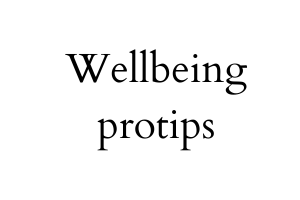In the digital landscape, the visibility of your website is paramount. One of the key factors influencing this visibility is how well your pages are indexed by search engines like Google. Indexing refers to the process by which Google discovers, analyzes, and stores web pages in its database, making them available for search queries. Understanding the importance of indexing links can significantly impact your site’s search engine optimization (SEO) strategy.
Why Indexing Matters
When you create content for your website, it’s not enough to simply publish it. For your audience to find your content, Google must first index it. Here are a few reasons why indexing is crucial:
- Visibility in Search Results: Only indexed pages can appear in search results. If your links aren’t indexed, potential visitors won’t find your content when they search for relevant keywords.
- Traffic Generation: Indexed pages can drive organic traffic to your site. This traffic is often more valuable than paid traffic because it’s composed of users actively searching for information you provide.
- Building Authority: Regularly updated and indexed pages can help establish your site as an authority in your niche. Search engines reward authoritative sites with higher rankings, further enhancing visibility.
- Improving User Experience: Indexed pages contribute to a better user experience. When users find relevant content quickly, they are more likely to stay on your site, reducing bounce rates and increasing engagement.
How Google Indexes Links
Google uses web crawlers, also known as spiders, to discover and index web pages. Here’s a simplified overview of the indexing process:
- Crawling: Googlebot, Google’s web crawler, starts by visiting a set of known URLs and follows links on those pages to discover new content. This is why it’s essential to have a well-structured site with clear navigation.
- Rendering: After crawling, Googlebot renders the page as a browser would, analyzing the content, layout, and any media elements.
- Indexing: Once the page is rendered, Google analyzes its content and stores it in the index. This process involves determining the page’s relevance to various search queries.
- Ranking: After indexing, pages are ranked based on their relevance, authority, and quality. This ranking determines where they appear in search results.
Factors Influencing Indexing
Not all pages are guaranteed to be indexed. Several factors can influence whether or not your links are indexed:
- Robots.txt File: This file tells search engines which pages to crawl and which to ignore. Ensure that you’re not unintentionally blocking important pages from being indexed.
- Meta Tags: The “noindex” meta tag instructs search engines not to index a page. Use it wisely to prevent the indexing of duplicate or low-value content.
- Quality Content: Pages with high-quality, relevant content are more likely to be indexed. Google prioritizes useful, original content over duplicate or low-quality material.
- Internal Linking: A strong internal linking structure helps Google discover new pages. Ensure that your important pages are linked from other relevant pages on your site.
- Sitemaps: Submitting an XML sitemap to Google Search Console can facilitate indexing by providing a roadmap of your site’s structure.
Strategies for Ensuring Links Are Indexed
To maximize the chances of your links being indexed, consider implementing the following strategies:
- Regularly Update Content: Fresh content is more likely to be crawled and indexed. Regular updates signal to Google that your site is active and relevant.
- Optimize Your Site Structure: A clear, logical structure with descriptive URLs can help crawlers navigate your site more efficiently. Use breadcrumb navigation and a hierarchical structure to improve usability.
- Utilize Google Search Console: This tool allows you to monitor your site’s indexing status. You can submit URLs for indexing and identify any errors that may prevent pages from being indexed.
- Encourage Backlinks: Building backlinks from reputable sites can improve your site’s authority and visibility, encouraging Google to index your pages more frequently.
- Promote Social Sharing: Sharing your content on social media can increase visibility and traffic, prompting Google to crawl and index your pages more regularly.
Conclusion
In the competitive digital landscape, ensuring that your links are indexed by Google is vital for visibility, traffic, and overall online success. By understanding the indexing process and implementing effective strategies, you can enhance your site’s SEO performance and make your content accessible to a wider audience. Remember, a well-indexed website is not just about search engines; it’s about connecting with your audience and providing them with the valuable information they seek. Prioritize indexing, and watch your online presence grow. Lumber takeoff services Duct takeoff services MEP Estimating services Residential Estimating Services
